Women Corporators of Kolkata Bring Fresh Development Ideas to their City
Meet the powerful women councilors of Kolkata Municipal Corporation who are all set to take charge and change things for the better in the city with the help of their interesting ideas. Here's how they are managing their new responsibilities with perfection.
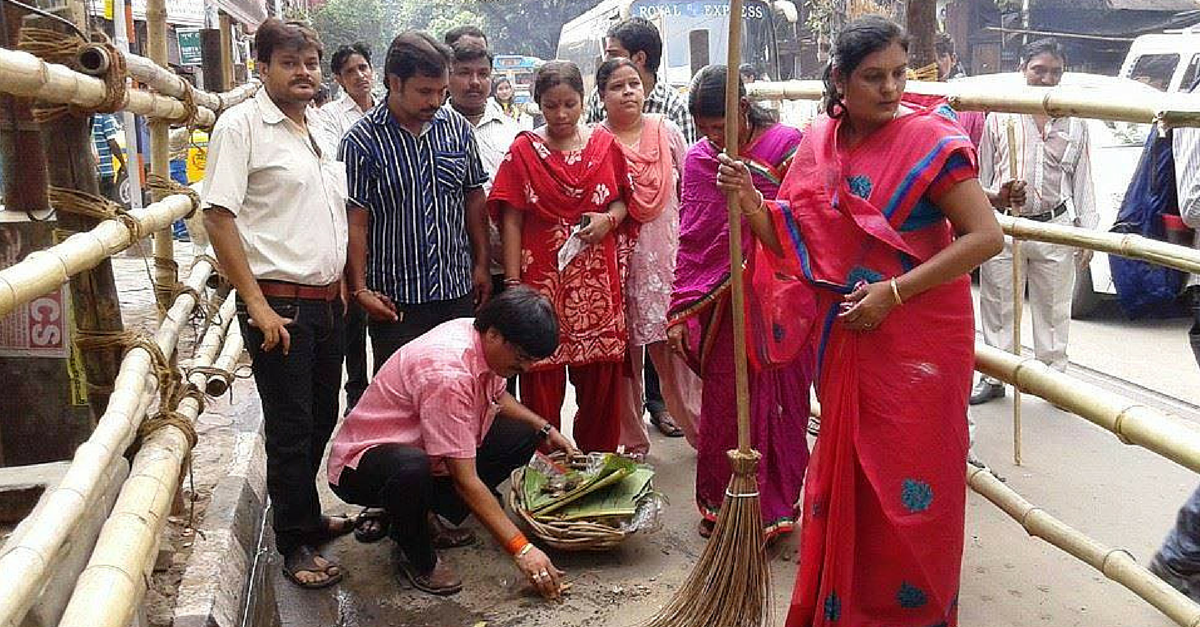
Meet the powerful women councilors of Kolkata Municipal Corporation who are all set to take charge and change things for the better in the city with the help of their interesting ideas. Here’s how they are managing their new responsibilities with perfection.
Sudharshana Mukherjee is used to a busy life. As a television journalist, she planned her day around the news cycle and often had to burn the midnight oil to meet deadlines.
Today, she is no longer a reporter but her schedule is about to get crazy hectic, with back-to-back meetings and discussions with city officials, municipal workers and, of course, citizens.
Mukherjee is a newly-elected councilor of the all-powerful Kolkata Municipal Corporation (KMC) that is responsible for running and maintaining the civic infrastructure in the historic state capital of West Bengal.
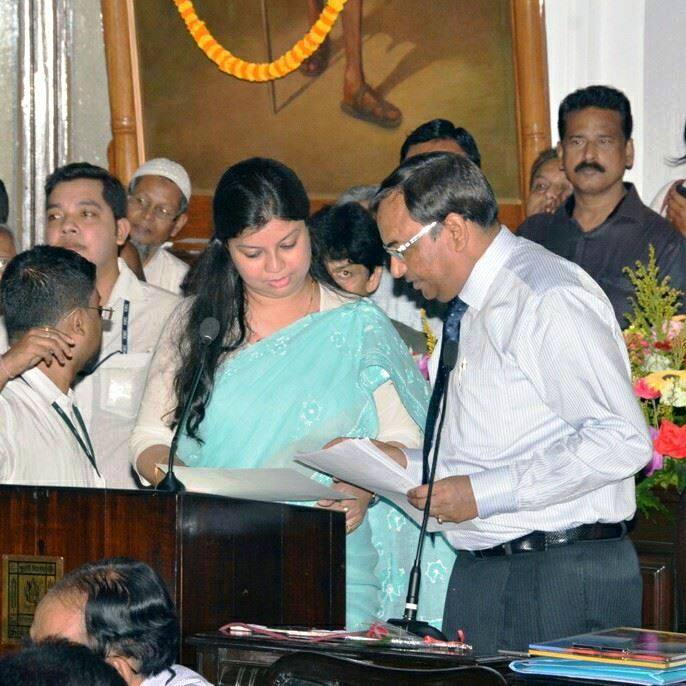
“I decided to give up my lucrative job to be able to do something for my city, for my people. I do believe that there are certain issues that women can understand better, like the need for proper sanitation and women’s safety,” says the first-time councillor of Ward No. 68, better known as the posh Ballygunge locality.
Mukherjee is among the 70 women that have been voted to the 144-member KMC for a five-year term. This is the highest number of female candidates ever elected to the municipality and together they will take decisions that will impact the future of the 4.6 million that live in the bustling city. “The KMC has 33 per cent reservation for women and that motivates committed female candidates to join the fray. Not just the reserved seats but they can also contest from the general quota, which only improves the odds of a greater number of women getting elected. What better way to increase their stake in governance,” remarks Sudheshna Bhattacharya, a journalist, who has covered urban local body elections for more than two decades.
Bhattacharya is right. From businesswomen, professionals and home-makers there is a mix of talented women in the municipality today and each one has brought to the job her unique understanding of issues and a work ethic based on integrity and diligence.
Like Mukherjee, Sana Ahmed is a first-time councillor. “I was never really interested in joining politics earlier but then I realised that if I want to see a change in my city then I would have to work for that change from within rather than complaining from the sidelines. It was my desire to do something concrete for the people that pulled me into the race,” says the homemaker-turned-councillor of Ward No. 62 in central Kolkata.
There is a whole range of key decisions and responsibilities that is thrust upon a municipal councillor – be it making the city safer for women and children by focusing on improving transportation and street lighting, ensuring better sanitation and water supply or upgrading roads in residential areas.
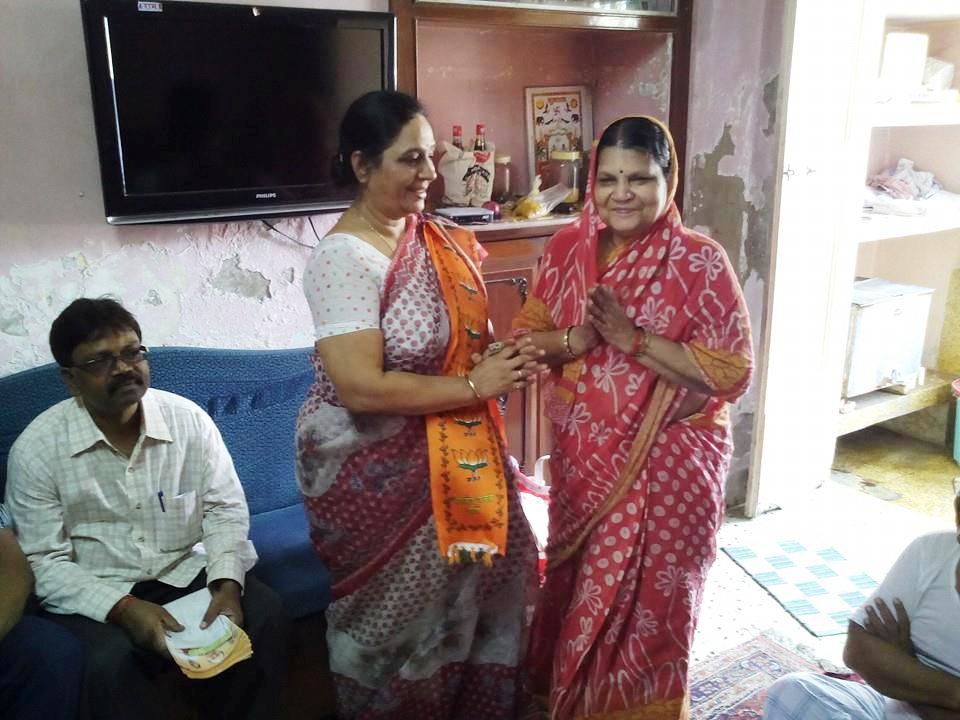
All these require meticulous planning, equitable use of funds and, naturally, a constant know-how on what people want.
“Being a councillor is more demanding than any regular nine-to-five job. City development and planning is serious business. We have to oversee works related to drainage, water supply, street lighting, and plantation drives, apart from ensuring the smooth functioning of corporation-funded schools and health centres. Each ward is allocated Rs 10 crore annually to get things done,” elaborates Mina Purohit, 54, who contested from a general seat this year won from Ward No. 22 in north Kolkata.
This four-time councillor from Bharatiya Janata Party (BJP) is as gung-ho about her duties right now as she was when she was elected for the first time two decades back.
“I have fought KMC elections five times. For me, this is the kind of career that is not just personally fulfilling but allows one to improve lives and create a constructive legacy. Political participation, be it for women or men, cannot just be about contesting elections alone. It has to be about making a difference with good ideas and setting the benchmark as a leader.”
– Mina Purohit
Personally, two-time councillor Jui Biswas from the ruling Trinamool Congress (TMC) wants to “lead by example” and put “my Masters in Business Administration (MBA) degree to good use to draw up specific plans for the betterment of the city”. This mother-of-two knows “there is a lot that needs to get done especially in terms of bringing the city’s infrastructure up-to-date” and she has to play her part in the progress.
Okay, once elected what is a typical day in the life of a councillor like? Purohit gives a low down, “Being a councillor is a 24×7 commitment. Anyone in the ward may need you at any time of day or night; it’s like working for emergency services. However, on an average my work day starts at nine in the morning. I meet a whole lot of people, make a note of requests, sign letters and, most importantly, solve local area problems. Thereafter, I head to the KMC office. In the evening, I make my way to the party headquarters to exchange notes with colleagues and work out any pending issues. It’s a full day but I am able to do justice because my children are independent and happy to support me in doing things that make me happy.”
If Purohit’s grown up children are glad to back their mother then so are Biswas’s young ones. “My two kids are very proud of me and they feel I am able to bring change in my own small way,” she says.
Apart from family, these motivated women councillors enjoy the loyalty of their male colleagues and other municipal staff, which is crucial for them to be effective in the KMC.
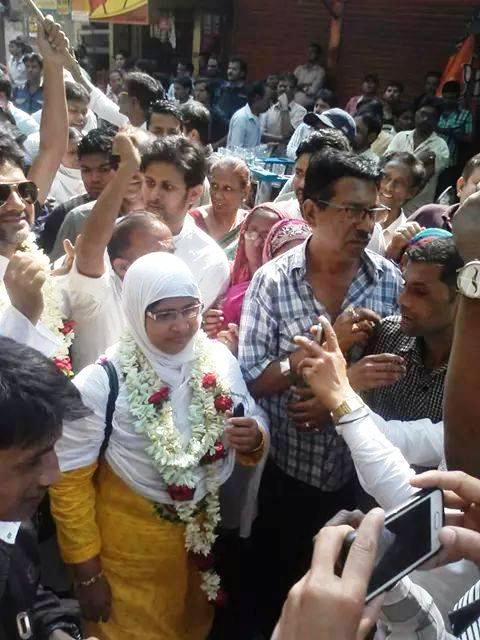
“In a sense, I think both men and women are more comfortable working with women. This is why I believe many more women should come forward and contribute to politics. As they handle their homes efficiently, they can also handle their wards. Moreover, this presents women with the perfect opportunity to make their presence felt in public spaces.”
– Sudharshana Mukherjee
Despite being divided across party lines, the women councillors have common development agendas. Ahmed, Purohit and Mukherjee are keen to concentrate on regularising standards of sanitation, drainage and water supply in addition to access to education, even as Shamina Rehan Khan, councillor of Ward No. 77, who has been elected three times, has decided to prioritise primary education, vocational training for women and the commencement of electric rickshaws in her area. Women’s safety is another central issue on their mind.
Purohit speaks for everyone when she says, “We have to get together to ensure more women become economically independent and are comfortable in the public domain. Only when their visibility increases will the rate of gender crimes start to decrease.”
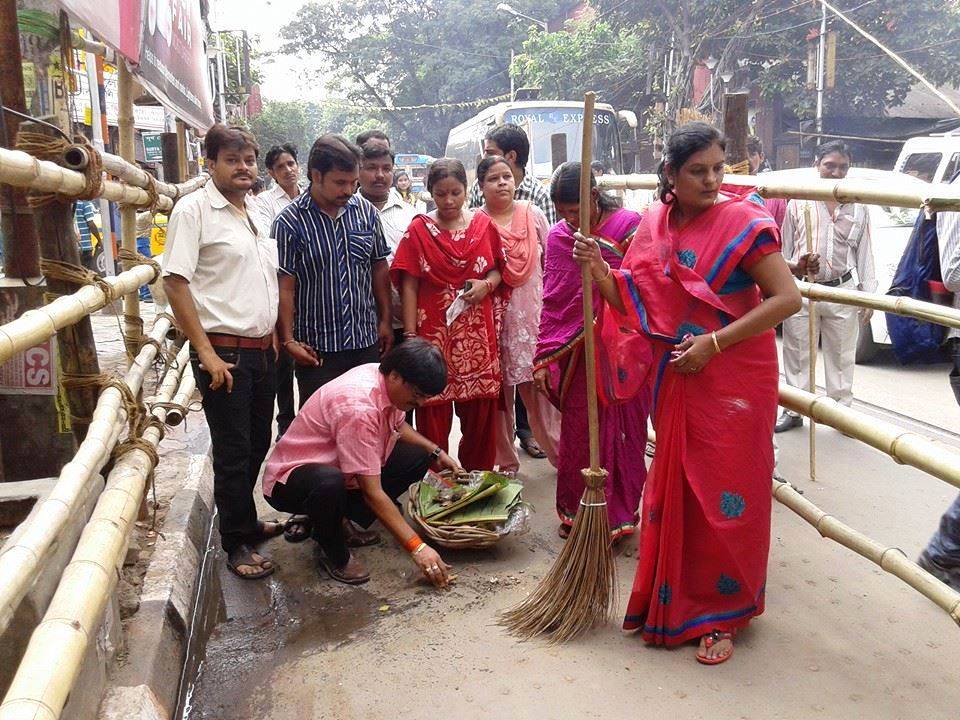
Adds Councillor Maya Ghosh, “Adequate street lighting is a must and we ought to look at solar energy to power them.” Additionally, she wants to “stop corruption and streamline the licensing process”. “We are working on online formats for all licensing issues. We want to initiate e-governance,” she says.
While it’s true that reservation has opened up the political platform for women, observers like Bhattacharya are not sure whether it is indeed game changing. “Given that women councillors are bound by the interests of the political parties they represent I wonder how effectively they can function as a force that shifts the paradigm of governance in the KMC.”
Nonetheless, councillors like Khan are eager to prove the sceptics wrong, “No doubt women are vulnerable and there are fewer opportunities available but we need to fight back to make sure the status quo changes. Women in grassroots governing bodies are capable of making quite a difference. They are able, honest and take care of their wards as they would their own home.”
Mukherjee sums up this optimistic mood perfectly, “As a councillor I may only make Rs. 4,320 a month but when one works for the people, nothing else matters.”
Like this story? Or have something to share? Write to us: [email protected], or connect with us on Facebook and Twitter (@thebetterindia).
If you found our stories insightful, informative, or even just enjoyable, we invite you to consider making a voluntary payment to support the work we do at The Better India. Your contribution helps us continue producing quality content that educates, inspires, and drives positive change.
Choose one of the payment options below for your contribution-
By paying for the stories you value, you directly contribute to sustaining our efforts focused on making a difference in the world. Together, let's ensure that impactful stories continue to be told and shared, enriching lives and communities alike.
Thank you for your support. Here are some frequently asked questions you might find helpful to know why you are contributing?


This story made me
-
97
-
121
-
89
-
167














